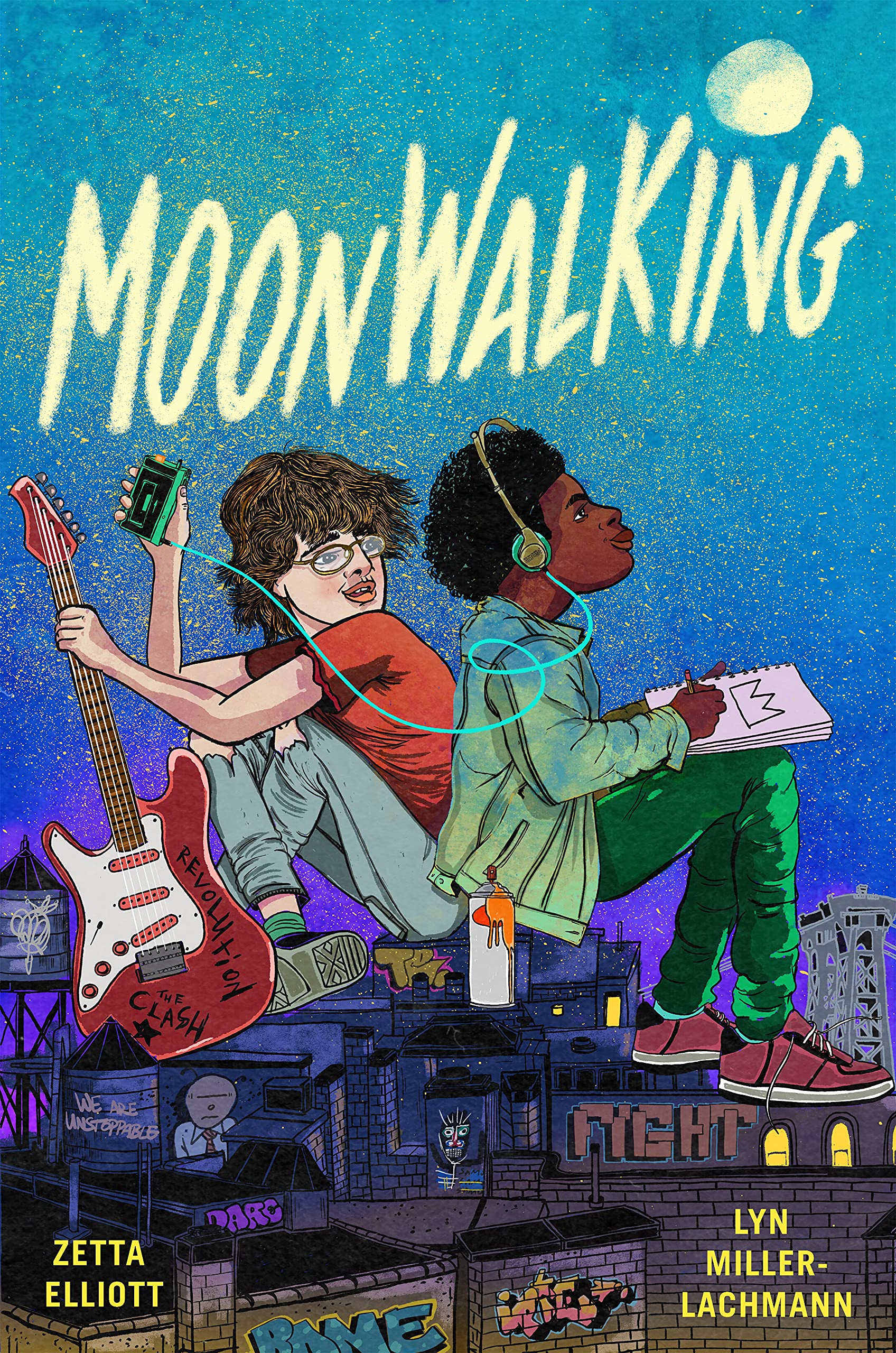Moonwalking
Zetta Elliott & Lyn Miller-Lachmann
FSG, 2022
216 pages
Grades 5-8
Zetta Elliott & Lyn Miller-Lachmann
FSG, 2022
216 pages
Grades 5-8
Narrative Poetry
Two separate authors relate the intertwining stories of two urban narrators from the 1980's told through poetry. Polish-American JJ must move to a basement apartment in Brooklyn after his father loses his job as an air-traffic controller for inciting a strike and fighting for worker's rights. School is hard and making friends impossible, so he finds solace through listening to punk rock music and imagining a life for himself in a band. Biracial Pierre (Pie) also doesn't feel like he fits in anywhere. Because of his mother's mental illness he has caretaking responsibilities for his little sister and is still mourning a friend's death. Pierre's outlet is graffiti art and it is by tagging walls that he finally feels seen and in control. Somehow these two unlikely misfits find each other and a tentative understanding/friendship starts to develop. Even though they must battle racism, poverty, family strife, and loss of control over their own lives, they reach an understanding and begin to reach some healing. After an incident with the police where the two boys are treated much differently, it becomes apparent that they live in both the same-yet different-worlds and must separately find a way to move forward.
Elliott and Miller-Lachmann channel their youth's in this story set in Brooklyn in 1982. The gritty landscape that was New York in the 80's is felt within the pages of text and the lack of knowledge about mental health clearly puts the story in the past. The blatant racism from both authority figures and family members I would hope puts the novel in the past, but unfortunately has relevance still today. JJ has learning troubles and is on the spectrum, which is undiagnosed and undetected in 1982. We see through his eyes how hard and confusing the world can be to process. This book is well-written, though may go over the heads of the target audience, Thoughtful readers who appreciate an emotional journey will find much to savor, but the average tween/teen may not have the patience to persevere through the book. JJ's narrations are on a slightly darker paper, distinguishing between narrators, but it took me a while to catch onto this and I often had a hard time determining who was talking. Because of the harsh realities displayed within the pages of this book, I think it will be best suited to the teen section and would recommend to a mature middle school audience or for older classroom use.

No comments:
Post a Comment